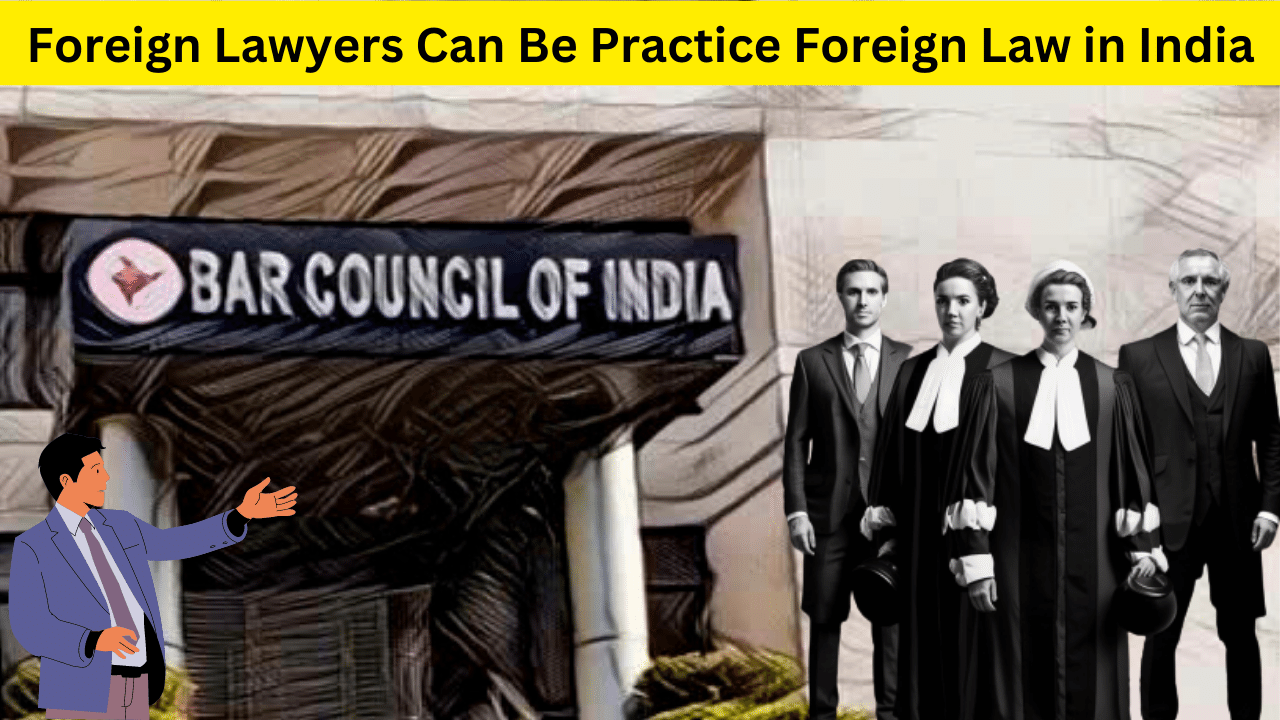The Bar Council of India (BCI) has recently announced new rules allowing foreign lawyers and law firms to practice foreign law in India on a reciprocity basis. This move will enable international lawyers and law firms to offer legal services in international arbitration cases within India and practice transactional and corporate work, This includes areas such as joint ventures, mergers and acquisitions, intellectual property affairs, contract drafting, and other associated matters.
However, Foreign Lawyers
and law firms are not permitted to appear before any courts, tribunals, or other statutory or regulatory authorities in India. In 2018, the Supreme Court of India restricted foreign law firms, corporations, or attorneys from practicing law in India, whether in litigation or non-litigation. The decision permitted foreign lawyers to provide temporary “fly in and fly out” services to clients in India, and also allowed foreign attorneys to conduct arbitration proceedings in India specifically related to disputes arising from contracts involving international commercial arbitration.
The newly introduced regulations are in accordance with the expanding customer base for international law in India and will assist in mitigating worries regarding foreign direct investment (FDI) inflow into the nation by positioning India as a hub for international commercial arbitration. The measure also reflects the UK’s decision to allow Indian lawyers and law firms to establish offices in England and Wales, enabling them to practice Indian law, international law, and provide legal advice under English law.
On a reciprocal basis, overseas Foreign lawyers and law firms will be permitted to engage in transactional and corporate activities in India, including joint ventures, mergers and acquisitions, intellectual property affairs, contract drafting, and other associated issues.
Foreign lawyers can practice law in several areas, including performing work, conducting business, and offering advice and opinions on the laws of their home country.
They can also provide legal counsel and act as an attorney for individuals, firms, companies, corporations, trusts, societies, etc., headquartered in a foreign country in any international arbitration matter taking place in India, irrespective of whether foreign law is involved. Additionally, they can offer legal advice and represent individuals, firms, companies, corporations, trusts, societies, etc., having their primary office in the foreign country of their primary qualification, in proceedings before non-judicial authorities that lack the legal authority to take evidence under oath, where knowledge of the foreign law of the primary qualification country is necessary. Lastly, they can offer legal advice on an array of international legal issues as well as the laws of their primary qualification country.
However, only partners or associates of a foreign law practice that is registered in India are permitted to provide advice on non-litigious matters and offer advice on subjects pertaining to laws outside of India. Such lawyers will not benefit from being registered advocates in India. If an Indian advocate, who is enrolled under the Advocates Act, is a partner or associate in a foreign law practice that is registered in India as per the new regulations, they will only be allowed to handle non-litigious matters and provide guidance on matters related to laws outside of India.
It should be noted that such a lawyer will not have the advantage of being a registered advocate in India for the purpose of practicing litigation.
In conclusion, the Bar Council of India’s decision to allow foreign lawyers and law firms to practice foreign law in India on a reciprocity basis is a significant development in the Indian legal profession. It will facilitate the growth of international law and enable foreign lawyers and law firms to offer legal services in international arbitration cases within India. In addition, this move will aid in positioning India as a hub for international commercial arbitration and alleviate worries about the influx of foreign direct investment (FDI) into the nation. However, the restriction on appearing before courts, tribunals, or other.
Tejashwi Yadav and Lalu Prasad’s family are embroiled in a land for jobs case









Leave a Reply